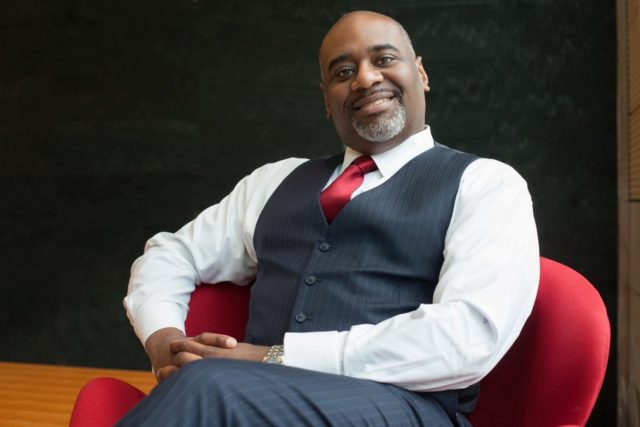Anthony Gray says that he is running for the Dane County Board of Supervisors because he believes that if we can impact the racial wealth gap, we can begin to close all of the racial disparities that Dane County is infamous for.
“I have a central thesis about some of the problems that befall the black and brown communities in this county and state and around the nation. It is this: Most of our problems – the achievement gap, the education gap, the health care gap – all stem from financial familial instability. It’s what we call the ‘wealth gap.’ That fact that for black and brown families one layoff or one health crisis will set back families for two generations,” Gray tells Madison365 in an interview at Cargo Coffee on Madison’s near-east side.
“Ultimately, what we need is systemic change,” he adds. “We can step in and try to aid individual situations on an ad hoc basis, but what’s required is systemic change … and that’s what I hope to catalyze.”
Gray is president and Chief Executive Officer at the Institute for Global Ethics of Madison, whose mission is to “provide practical tools to build ethical fitness and cultures of integrity at home, at school, in the workplace, and in society.” Gray is also a developer, his first project, The ADDI, named after his daughter, just broke ground. The new building will have 39 housing units from studios to two-bedrooms on University Avenue in Middleton.
As an attorney, non-profit executive, and small business owner, Gray believes he has the background and experience to bring innovative ideas to county government. He recently threw his hat into the ring to succeed current District 14 County Supervisor Huong Nguyen-Hilfiger, who has chosen not to seek office again.
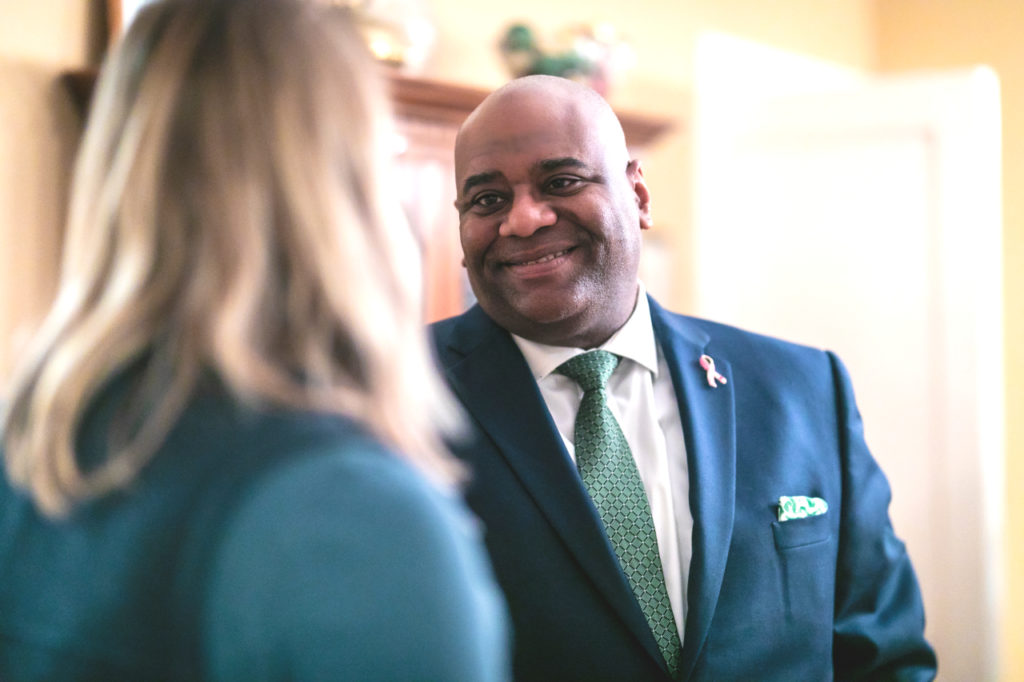
(Photo by Hedi Lamarr Photography)
“I think all of us have an obligation to figure out how to make our individual contributions,” Gray says when asked why he decided to run for office. “At different times in my life, my contributions will be different. It seemed to be the best way to help my community right now was to put myself through this [political] process.
“As I was considering running, I thought about who I am and what I have to offer. I’m a non-profit executive. I’m an attorney and I’m a small business person. So, I thought those skill sets could be useful at catalyzing change for the Dane County government,” Gray adds. “That wealth gap that I just mentioned was the animating drive for me to run. I want to work on promoting public policy that encourages black and brown people to start and run businesses, to access financial literacy, to do the things they need to do to stabilize their families financially so that they can close the wealth gap, which I believe will impact all of the racial disparities that, unfortunately, Dane County has become famous for.”
Entrepreneurship, Gray says, is a significant key to decreasing that racial wealth gap. “I’m going to sponsor the program I took in Milwaukee – ACRE,” he says. “It may be called something else when it comes to Dane County. It’s a very important program.” Associates in Commercial Real Estate (ACRE) is a 6-month-long program that trains traditionally underrepresented people of color and women for careers in property management, construction management and commercial real estate development.
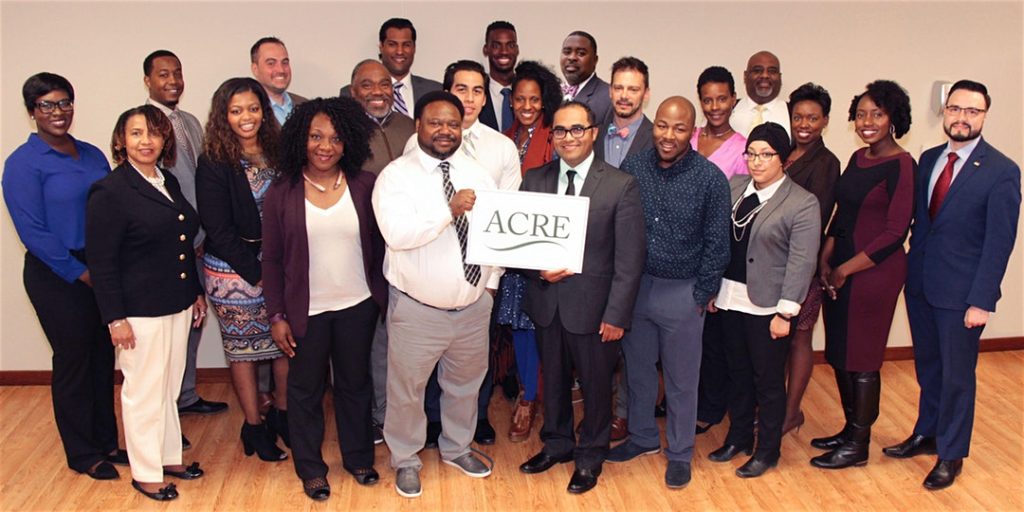
“It’s a sector of the economy that we’re almost invisible in and it’s a sector where wealth can be created,” Gray continues. “Most wealth in this country is gained through homeownership and entrepreneurship. I think if we can focus on those things and make it easier for people to access both the information they need in terms of financial literacy and the capital they need to start and run businesses, we might be able to move the needle.”
Gray and I both note that we have a head of a non-profit speaking to a non-profit media source in a city that is close to having the most non-profits per capita in the nation.
“Non-profits are wonderful, don’t get me wrong. But what I’m talking about is deep-rooted and systemic. Non-profits can help, but closing the wealth gap will change the underlying financial system,” he says. “To me, that underlying systemic change is the only way we are going to get from 49th or 50th in racial disparities to, say, even 45. Even that would be a massive improvement. Incremental, but massive.
“So, I’ve decided this is the way I’m going to help us go from 49th to 45th – by encouraging and supporting more black and brown families to start and run businesses,” he adds.
Racial disparities, closing wealth gaps and creating opportunities are not always easy conversations to have with strangers as he goes door to door in his District 14. Nevertheless, Grays says these are things that people are talking about.
“And not just black and brown people … everyone is talking about it,” he says. “As a general rule, the reception has been overwhelmingly favorable because people understand how we are all interconnected – that improving the lives for some of us, improves the lives for all of us.
“In my area of the city, I’m finding that people are also concerned about getting more economic development in that part of the city,” Gray continues. “They see all of the activity that is taking place downtown – which is wonderful – but we need some of it out there, as well.
“There are also some concerns as we go door to door about safe families and safety and security and making sure that everyone has safe places to play and recreate,” he adds. “People talk a lot about taking care of the park system out there. Also, road construction … that’s something I hear about at just about every door. There’s tremendous concern about the volume of road construction that’s taking place in that area of Madison.”
District 14 is located in the southwest corner of the city of Madison just north of Fitchburg and Verona. There, Gray is a member of the Country Grove Neighborhood Association, the Chavez Elementary School PTO, and the Chavez Elementary Dual Language Immersion Program, in which both of his children – Addison Bailey, age 9 and AJ, age 7 – are enrolled.
He is also a member of the MMSD Black Excellence program and the local homeowners association.
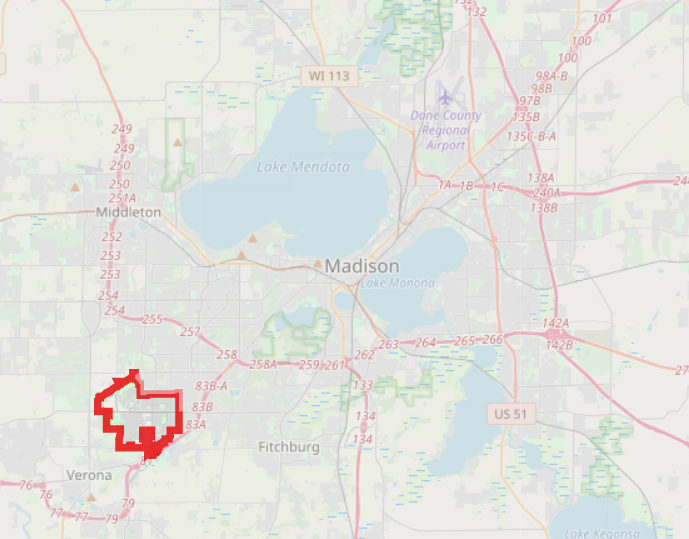
Gray has gathered quite a few endorsements already.
“[Dane County] Supervisor and State Rep. Stubbs and County Executive Joe Parisi endorsed me yesterday because they believe in working to close the wealth gap,” Gray says. “I also have been endorsed by my alderwoman, Donna Moreland, who is also my treasurer. I’ve also been endorsed by my assemblywoman, Lisa Subeck. I’m so grateful for the confidence people have placed on this agenda and the willingness to work with me to close the wealth gap.”
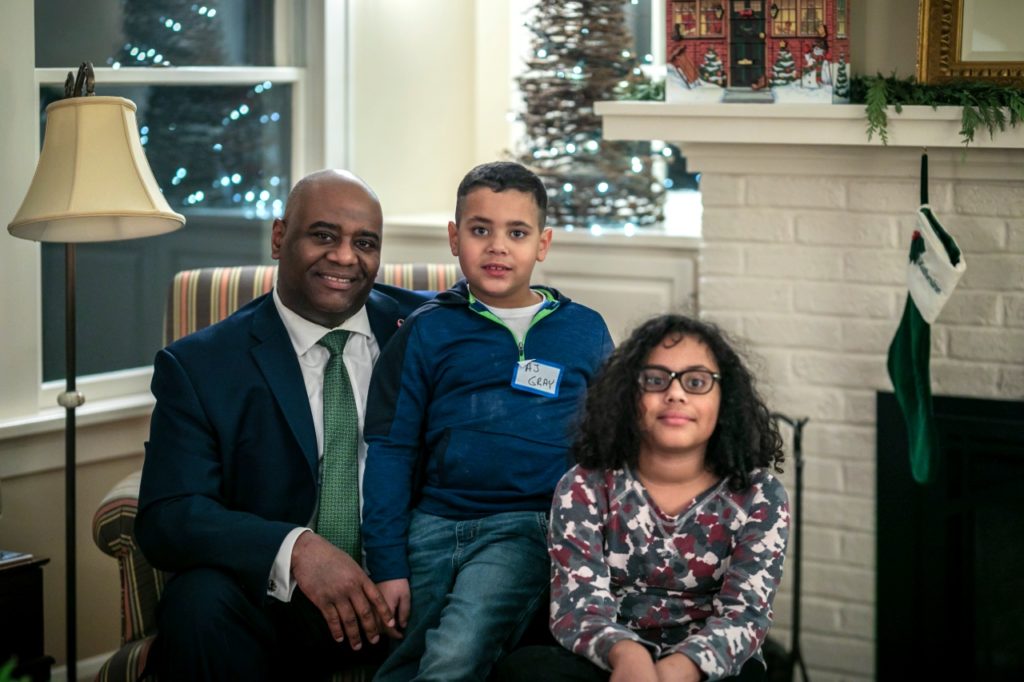
(Photo by Hedi Lamarr Photography)
As a passionate fly fisherman and an occasional hunter, environmental issues are also very important to Gray. He believes Dane County can be a leader on that issue, too.
“I also want to clean our lakes and rivers. I’ve seen the consequences of not taking care of what I believe are the County’s crown jewels – its waterways,” Gray says. “It affects me in a very personal way, so I want to make sure that we keep our waterways clean and safe and keep invasive species out. We can use it as a promotional tool to bring tourism dollars and economic development into Dane County.”
Gray lists criminal justice reform as another high priority.
“I think everyone on every end of the political spectrum believes the system is broken,” he says. “The question is what to do about it and I think we need to reform our cyclical and cynical criminal bail system. I think we need to have some alternative remedies to incarceration. I think that we really need to find ways to decrease the population of incarcerated folks in Dane County. Some of those are diversionary programs, some of those are other support systems.
“To bring it back to the wealth gap, I believe that if people were in a more stable position with their families, they wouldn’t get sucked into the system,” he adds.
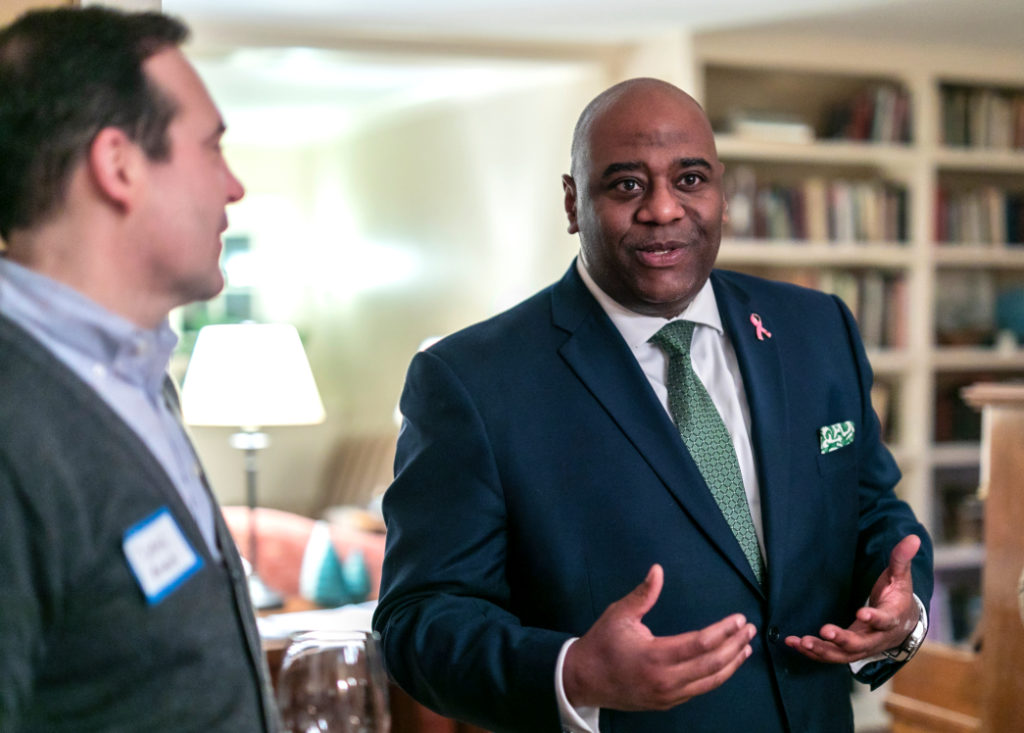
(Photo by Hedi Lamarr Photography)
Gray says that the Dane County Board really needs a strong, overall agenda and they need to be bold.
“We need to all be rowing in the same direction. There are amazing resources in this city. There’s amazing wealth and amazing talent,” he says. “What we need is to clarify the agenda and get everyone rowing in the same direction.
“My hope is that the agenda we’re running on is universal. Systemic change is not something one individual can do. I hope to be a catalyst. I hope to be a spark. But the only way this thing works is if I have buy-in from my colleagues on the County Board, City Councils and State Legislature. We’ve got to work collaboratively,” Gray continues. “I’m prepared to do that. I think I have a reputation for that kind of contemplative, rationale, collaborative approach. I genuinely want to make a difference.
“I think the city’s and the county’s best days are ahead. Given the new progressive leadership cohort that we are seeing, there’s a real opportunity for game-changing and innovative public policy,” he adds. “We can become a laboratory for progressive public policy. And that, to me, is exciting.”

























